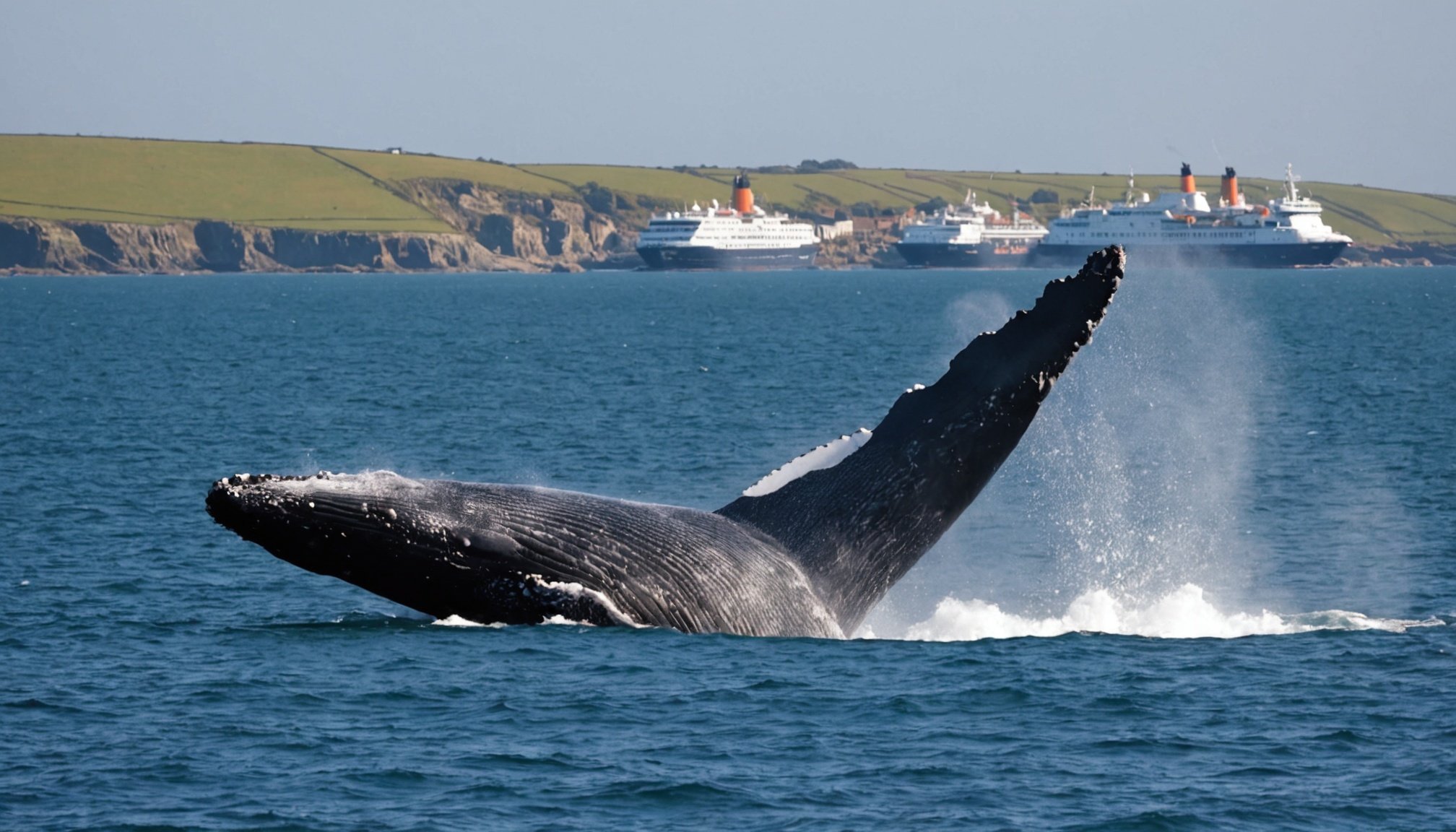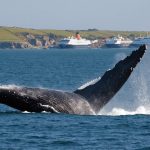Overview of UK Whale Watching Cruises
UK whale watching cruises promise adventurous souls an exhilarating, exclusive experience on the water. These all-encompassing excursions, especially along the picturesque British coastline, are offered by leading cruise lines such as P&O Cruises, Fred. Olsen Cruise Lines, and Cunard. Participants on these expeditions enjoy the thrill of spotting majestic whales in their natural habitat, a significant aspect of coastal adventures in the UK.
Distinct cruise operators enhance their offer with unique touches, setting their excursions apart. P&O Cruises may focus on educational talks given by marine biologists, while Fred. Olsen might offer more intimate settings and closer encounters. Cunard, on the other hand, could centre on luxury, providing elegantly crafted experiences that cater to those seeking both comfort and wildlife immersions.
In the same genre : Exploring Cornwall”s Legacy: Top UK Cruises Featuring Guided Tours of Historic Mining Sites
The significance of whale watching stretches beyond simple excitement. In recent years, it has become crucial for raising awareness about marine conservation while contributing to local economies. With the UK offering abundant marine biodiversity, these excursions highlight the region’s rich ecological tapestry, making them not just an adventurous indulgence but a step towards sustainable tourism.
Key Destinations for Whale Watching in the UK
When it comes to whale watching destinations in the UK, the coastline boasts numerous coastal towns offering remarkable experiences. Popular spots include Scotland’s Moray Firth and Yorkshire’s Whitby. Here, visitors can witness breathtaking marine life amid stunning natural backdrops.
Additional reading : Explore UK Cruises Offering Guided Hiking Adventures in Stunning National Parks Like the Lake District
Moray Firth, the northern tip of Scotland, provides a sanctuary for various whale species and offers cruises that showcase both marine life and historical scenery. The scenic cruises in this area not only exhibit an array of wildlife but also the rugged beauty of the Scottish Highlands.
In Whitby, the coastal town itself charms visitors with its unique heritage and classic seaside appeal. The scenic routes followed by cruises offer opportunities to see minke whales, dolphins, and porpoises. As boats navigate the waters, they provide passengers with both excitement and tranquility against the dramatic backdrop of the North Sea cliffs.
Engaging in these cruises not only promises sightings of whales but ensures a memorable exploration of the unique coastal tapestry and rich maritime history embedded in these coastal towns.
Types of Whales Commonly Seen on UK Cruises
When embarking on a UK cruise, one can expect to encounter a diverse array of marine wildlife, prominently featuring several species of whales. Among the common whales UK cruise-goers might spot are the Minke whale, the second smallest of the baleen whales, famed for its curiosity towards boats. Recognisable by a singular, bushy blow and sleek body, Minke whales are frequently sighted along the UK coast.
Another significant species is the majestic Humpback whale, known for its impressive breaching behaviours and long pectoral fins. These intelligent giants are often observed along migration routes and are identifiable by their unique tail patterns.
Orcas, or killer whales, although less common, are prestigious spectacles due to their bold, contrasting black and white hues and complex social behaviour.
Marine wildlife enthusiasts will appreciate the statistical trends showcasing seasonal whale species migrations. Sightings peak during summer months when oceans become rich feeding grounds, drawing whales closer to the coast.
These interactions with the common whales UK offer invaluable opportunities to understand the behaviours and characteristics of these magnificent creatures, emphasising the United Kingdom’s fertile marine ecology.
Cruise Itineraries Featuring Whale Watching
When planning cruise itineraries with whale watching as the primary focus, travellers often seek detailed tour packages that offer immersive marine experiences. Carefully crafted itineraries will typically highlight prime whale-watching spots, taking guests to locations known for high concentrations of these majestic creatures.
Duration plays a crucial role in these cruise packages. Some may offer short excursions, ideal for those with limited time or who prefer a taste of this activity without committing to it extensively. Others might provide extended voyages, designed for enthusiasts seeking comprehensive exploration over several days.
Selecting the right package involves considering personal preferences and travel goals. Consider whether you’re drawn to short-term sustainability or interested in connecting with a region’s ecology in depth. Different packages might include additional activities or excursions such as kayaking, snorkeling, or visiting local marine protected areas, which further enhance the experience.
By evaluating these aspects, travellers can make informed decisions when choosing their ideal travel plans, whether seeking a brief encounter or deep immersion. This careful selection ensures a blend of memorable marine experiences and comfortable onboard living that truly satisfies diverse interests and expectations.
Best Times to Experience Whale Watching in the UK
Whale watching in the UK is a thrilling opportunity to witness these majestic creatures in their natural habitat. The whale watching seasons peak from late spring through the summer months, often extending into early autumn. This timing aligns with the migration of various species, such as minke and humpback whales, along the UK coast.
Understanding the peak times is crucial. For optimal sightings, it’s recommended to plan your observations between May and September. During these months, the seas are calmer and the weather is more predictable, enhancing the possibility of a successful experience.
Travel tips for whale watching highlight the importance of choosing the right location and time of day. Coastal regions like Scotland’s Moray Firth, the Isle of Mull, and Wales’ Pembrokeshire coast are renowned for their spectacular views. Early morning or late afternoon cruises often yield the best results, allowing quieter seas and higher activity levels among marine wildlife.
Incorporating insights from marine biologists regarding whale migration patterns can heighten your experience. Experts emphasise the significance of tides and currents, which influence whale behaviour and visibility. Planning around these patterns with the guidance of knowledgeable local operators ensures a rewarding adventure.
Tips for Travelers on Whale Watching Cruises
Embarking on a whale watching experience can be exhilarating and awe-inspiring. Proper preparation is key to enhancing your trip. Here are some travel tips for ensuring you have a rewarding adventure:
Firstly, equip yourself with essential items. A pair of binoculars will allow you to see the whales more clearly from a distance. Don’t forget sunscreen and sunglasses to protect yourself from the sun, as well as layers of clothing for fluctuating temperatures and possible sea spray.
Once you’re ready to embark, it’s important to know what to expect during the cruise. Whale watching boats often move slowly to give passengers the chance to spot whales and to minimise disturbance to the animals. Prepare for the possibility of a rolling sea and consider medication if prone to motion sickness.
Lastly, maintaining respect for marine life and habitats is paramount. Keep noise to a minimum and follow the crew’s instructions regarding proximity to the whales. Remember that observing these magnificent creatures in their natural habitat is a privilege, one that comes with the responsibility of conserving their environment. This not only protects the animals but also ensures future generations get to enjoy the same incredible experience.
Booking Information and Resources
For those interested in booking whale watching cruises, knowing how to secure the best deal is crucial. Begin by consulting reputable sources such as travel websites, local tourism boards, and cruise operators’ official websites. These platforms provide reliable information on the available cruises, ensuring you make an informed choice.
When considering pricing, remember that packages can vary widely. A standard package usually includes cruise tickets, water or light refreshments onboard, and a guided experience with experts on marine life. However, extras like meals or extended tours may cost more. Prices can fluctuate based on the season, duration, and amenities offered.
To maximise your budget, be proactive in searching for deals or promotional offers. Sign up for newsletters from cruise operators or travel agencies, as they often send out special discounts to subscribers. Additionally, travel forums and social media groups can be valuable resources for finding spontaneous deals. These sources not only guide you to the best prices but also ensure your whale watching adventure is both memorable and economical.
















